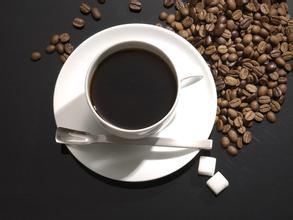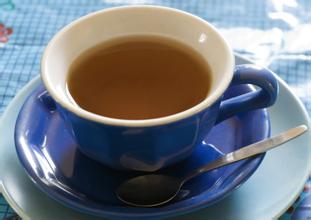The flavor and taste of coffee in Berman Manor, Kenya, which is rich and perfect, features fine coffee and beans.
Kenya is 582646 square kilometers across the equator, bordered by Somalia to the east, Ethiopia and the Republic of South Sudan to the north, Uganda to the west and Tanzania to the south. The southeast is bordered by the Indian Ocean and the coastline is 536 kilometers long. The Kenyan national emblem established in 1963 centers on a shuttle-shaped shield emblem consistent with the national flag, with a golden lion on each side, a spear and a shield emblem. The white rooster with an axe in the back is the emblem of the African National Union of Kenya. According to the local tradition, the rooster symbolizes the new life. The two lions embody national sovereignty and national dignity, as well as the ties between Kenya and Britain. Under the feet of the two lions is the Kenyan volcano, the second largest mountain in Africa. It treads on fertile land, covered with coffee, oranges, sisal tea, corn and pineapple, and is full of fruit and fragrance. This is a microcosm of the peaceful life of the Kenyan people and the prosperity of the country. The brown ribbon under the national emblem is marked with the word "coexistence" in Swahili, expressing the desire of the Kenyan people for peace, fraternity, freedom and equality. Kenya maintains a presidential system of government. Since independence, the Kenyan League has been in power for a long time. After changing to a multi-party system in 1991, the Kenyan League won two consecutive multi-party elections in 1992 and 1997, and Moi was re-elected president. In the third multi-party general election held in December 2002, the opposition coalition National Rainbow Alliance (all League) defeated the Kenya League, Kibaki was elected president, and the League won a majority of seats in parliament. After the general election in December 2007, national riots were caused by disputes over the election results between the ruling National Unity Party and the opposition Orange Democratic Movement. Under the mediation of former UN Secretary General Kofi Annan, the two parties to the dispute signed the Agreement on the principles of Partnership of the Coalition Government on February 28, 2008 and formed a coalition government on April 13. The leader of the ruling party, Mwai Kibaki, is president, and the leader of the opposition, Odinga, is the new prime minister. In March 2013, Kenya held a new general election, "Jubilee Alliance" candidate Kenyatta defeated the "Alliance for Reform and Democracy" candidate Odinga, was elected the fourth president of Kenya. On April 9, Kenyatta was sworn in
High-quality Kenyan coffee is aromatic, full-bodied and fruity, with a rich and perfect taste. Kenyan coffee has a wonderful fruit flavor, tastes like BlackBerry and grapefruit, and is a favorite of many coffee gluttons. This coffee has an excellent medium purity, crisp and refreshing taste. It has a fresh flavor and is most suitable for drinking iced coffee in summer. When tasting this coffee, if it is paired with sour fruits such as grapefruit, it will certainly give me the best coffee experience. "not much like coffee, but a bit like fruit tea" is the common feeling of many people about this kind of shallow roasted Kenyan coffee.
In addition to having obvious and charming fruit acidity, Kenyan coffee is mostly from small coffee farmers, planted in a variety of different environments, encounter different climate and rainfall every year, and bring a variety of distinct and unique personalities. Take the AAPlus grade "KenyaAA+Samburu" as an example, the Samburu in 2001 has a strong aroma of black plum, the acidity is not high, and the taste is strong. The newly harvested Samburu in the winter of 2002 presents a completely different flavor, mulberry and green plum, with a little Nanyang spice (Spicy) flavor, after drinking, the aftertaste has the sweetness of green tea, the acidity is slightly higher than the year before, the taste is still strong. The common Kenyan taste is not strong, but it has a bright fruit-like flavor, some spicy and some red wine. This is how Kenya makes coffee fans look forward to and surprise Kenyan coffee beans the Kenyan government takes the coffee industry very seriously, where it is illegal to cut down or destroy coffee trees. Kenyan coffee buyers are world-class high-quality coffee buyers, and no other country can grow, produce and sell coffee on a continuous basis like Kenya. All coffee beans are first acquired by the Kenya Coffee Commission (CoffeeBoardofKenya, CBK), where they are identified, graded, and then sold at weekly auctions, where they are no longer graded. The Kenya Coffee Commission only acts as an agent to collect coffee samples and distribute them to buyers so that they can determine the price and quality. The auction in Nairobi is for private exporters, and the Kenya Coffee Commission pays growers a price below the market price. The best coffee grade is bean berry coffee (PB), followed by AA++, AA+, AA, AB and so on. The fine coffee is shiny, delicious and slightly alcoholic. Auctions are also organized to meet the needs of dispatchers. This kind of auction usually has a small auction volume (3-6 tons each), with samples with the grower's logo for buyers to enjoy. After the auction, the exporters pack according to different flavors, different qualities and the quantity required by the blenders. This provides a great deal of flexibility for the dispatcher. Quality-conscious Germans and Nordic people are long-term buyers of Kenyan coffee.

Important Notice :
前街咖啡 FrontStreet Coffee has moved to new addredd:
FrontStreet Coffee Address: 315,Donghua East Road,GuangZhou
Tel:020 38364473
- Prev

An introduction to the characteristics of coffee flavor and taste in Incht Manor, Guatemala, which contains slightly charcoal flavor.
In 1982, the leftist guerrillas of the whole country merged to form the National Revolutionary Union of Guatemala, and armed struggle spread all over the country. Farmers dissatisfied with the overthrow of the Arbens regime organized a guerrilla group in which more than 100,000 people were killed and millions displaced. In September 1982, the persecution of the local Mayans by the Guatemalan army was close to genocide, and more than 9000 Mayans were killed. nineteen
- Next

Introduction to the characteristics of coffee flavor and taste in Santa Barara Manor, Honduras, which is not strong in sour and bitterness.
Honduras is a mountainous country in Central and North America, with a population of more than 8.3 million and an area of about 112000 square kilometers. Located in the north of Central America. It is bordered by the Caribbean Sea to the north, the Gulf of Fonseca in the Pacific Ocean to the south, Nicaragua and El Salvador to the east and south, and Guatemala to the west. More than 3/4 of the territory are mountains and plateaus. The mountains extend from west to east, inland is a lava plateau, mountainous
Related
- Does Rose Summer choose Blue, Green or Red? Detailed explanation of Rose Summer Coffee plots and Classification in Panamanian Jade Manor
- What is the difference between the origin, producing area, processing plant, cooperative and manor of coffee beans?
- How fine does the espresso powder fit? how to grind the espresso?
- Sca coffee roasting degree color card coffee roasting degree 8 roasting color values what do you mean?
- The practice of lattes: how to make lattes at home
- Introduction to Indonesian Fine Coffee beans-- Java Coffee producing area of Indonesian Arabica Coffee
- How much will the flavor of light and medium roasted rose summer be expressed? What baking level is rose summer suitable for?
- Introduction to the characteristics of washing, sun-drying or wet-planing coffee commonly used in Mantenin, Indonesia
- Price characteristics of Arabica Coffee Bean Starbucks introduction to Manning Coffee Bean Taste producing area Variety Manor
- What is the authentic Yega flavor? What are the flavor characteristics of the really excellent Yejasuffi coffee beans?

